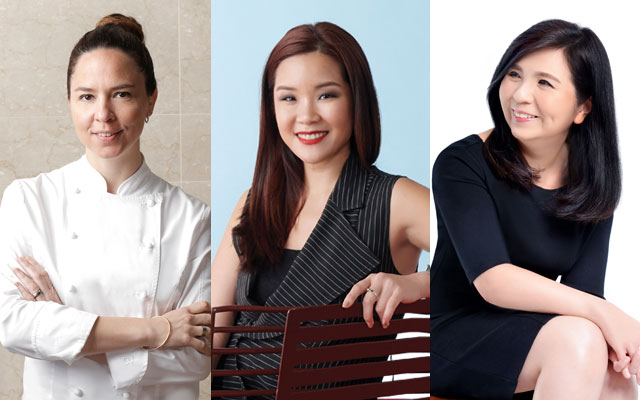The hospitality industry has welcomed more women into leadership roles in the past decade, with Accor setting an example as a company that invests in identifying and raising female leaders
As the number of Accor’s properties in Asia-Pacific grows, so has the number of female heads, as the company dedicates significant resources into helping them develop professionally.
The group is committed to having at least 35 per cent women general managers in its hotels by end-2020; it currently stands at 25 per cent. To date, out of 300,000 employees worldwide, 42 per cent department heads and 29 per cent of general managers are female.

But there are still challenges women have to overcome, for instance, cultural perceptions and dated mindsets, in order to fix the gender imbalance present in the hospitality industry.
“Social norms in Asia-Pacific still place high expectations on females to be the main home carer for the family. This expectation makes it difficult for female leaders to balance family commitments and a career in hospitality,” said Christine Rumble, chief talent & culture officer, Accor Asia Pacific.
Chidchanok Pasinpong, general manager of SO Sofitel Hua Hin, opined that the cultural shift can only happen when people stop assigning gender roles at a young age.
“We need to empower girls so that they know they can pursue their passion and excel in any field they choose when they grow up, be it a male-dominated role or not. On the flipside, there are departments such as human resources and housekeeping that are dominated by women. There needs to be a shift in thinking that these are women’s jobs,” she said.
Anne-Cecile Degenne, executive chef with Raffles & Fairmont Makati, believes that equality is crucial in any workplace, but “mentalities are difficult to change entirely” and there are still people who believe that “high positions belong to men”.
The good news is, with more women performing well in their roles as compared to their male counterparts, perceptions are changing, suggested Jacqueline Poey, hotel manager of Fairmont Singapore and Swissotel The Stamford.
Poey told TTGmice that Accor has helped her develop professionally. She recalled: “I was fortunate to be given the opportunity to attend a leadership training session only meant for vice presidents, high-potential general managers and corporate directors.”
The opportunity to go for greater goals was not unique to Poey. After helping Hotel Des Arts win the 2016 World Luxury Hotel Awards, Accor sought Degenne’s expertise to helm the kitchens at Raffles Makati and Fairmont Makati.
Meanwhile, Chidchanok is paying it forward by getting involved in RiiSE, Accor’s diversity network, by supporting other female employees through mentoring and training programmes.
Riise aims to share knowledge of solidarity and combat stereotypes. Its membership stands at 14,000, and nearly half are men. Other Accor initiatives include the International Hospitality Management Programme and GM Pass to fast-track star talent to general manager roles; as well as specific learning paths in different areas of management. These do not have gender quotas, and all participants are evaluated based on merit.
Recognising that there is also inequality in the F&B departments, Accor has launched a new network WILD F&B – Women in Leadership Disrupting Food and Beverage to bring female F&B leaders together to challenge and support one another.
Although gender imbalance has definitely improved in recent times, there is still room for improvement.
Chidchanok said: “We are definitely heading in the right direction but I don’t feel we have achieved a gender balance yet. On the property level, there’s a healthy mix in the executive committee. In corporate offices across the hospitality industry though, a majority of the executive committee is made up of men.”
As for Degenne, she hopes the call for female leaders in F&B be louder, as the strengths of a woman are usually compared to that of men. She wants to close the gap in gender inequality by sharing with fellow women her experiences as a woman and mother succeeding in the industry.
“Men and women are different and this needs to be recognised and celebrated. We need all types of people in our team – different gender, age and nationality. Diversity encourages everyone to perform better, by challenging status quo,” Rumble concluded.





















